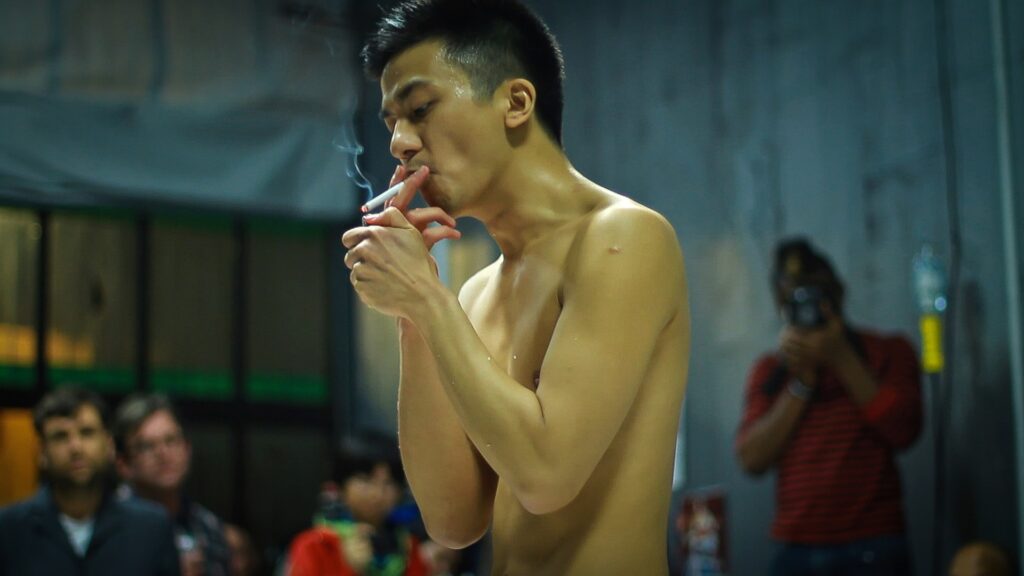“In my moving image practice, I explore the politics of reconstructing a moment of personal trauma and shame. My performance work investigates the performing body and its relationship to the moving image as documentation. My current performance practice investigates the differences between a re-created memory and the original ephemeral experience” — Loo Zihan

Loo Zihan, Cane (2012), M1 Singapore Fringe Festival 2012, The Substation Theatre, Singapore, 2012 | Image courtesy of the artist and Samantha Tio
Born in 1983 in Singapore, Loo Zihan is a performance and moving-image artist and educator. Loo is interested in the affectual transference and transmutation of shame in his work. His recent body of work strives to reconcile the tension between the “flesh” of the performing body and the “bone” of the archive. He emphasises the labour and malleability of memory through various representational strategies that includes performance re-enactments, essay films and data visualisation.
After graduating from Bachelor of Fine Arts, Digital Filmmaking with a minor in Drama and Performance in the School of Art, Design and Media, Nanyang Technological University, Singapore in 2009, Loo has been further studying in the United States of America. He received Master of Fine Arts, Studio Practice (Film, Video, New Media and Animation) in the School of the Art Institute of Chicago in 2011, and Master of Arts, Performance Studies in New York University in 2017. Since 2019, he is the PhD candidate from Performance Studies, UC Berkeley.

Loo Zihan, Catamite (2019) – Lecture Performance, commissioned by M1 Singapore Fringe Festival | Image courtesy of the artist and Samantha Tio
Loo’s moving-image works have been selected and screened at various international film festivals including the Pusan International Film Festival in South Korea, AFI Festival in Los Angeles, and Deauville Asian Film Festival in France. His performances have been presented at various performance events including the Singapore International Festival of Arts and Rapid Pulse International Performance Art Festival in Chicago. Loo has taught at various institutions including the National Institute of Education, the School of Art, Design and Media, Nanyang Technological University, and the School of the Arts, Singapore, a specialised secondary school for the arts that offers the International Baccalaureate Diploma programme.
Loo’s meticulous investigation into history, memory and identity
Loo’s body of work is a meticulous investigation into history, memory and identity, leading the audience to confront their relationships with the objects and how the audience view the narratives surrounding them. “In my moving image practice, I explore the politics of reconstructing a moment of personal trauma and shame. My performance work investigates the performing body and its relationship to the moving image as documentation. My current performance practice investigates the differences between a re-created memory and the original ephemeral experience.”
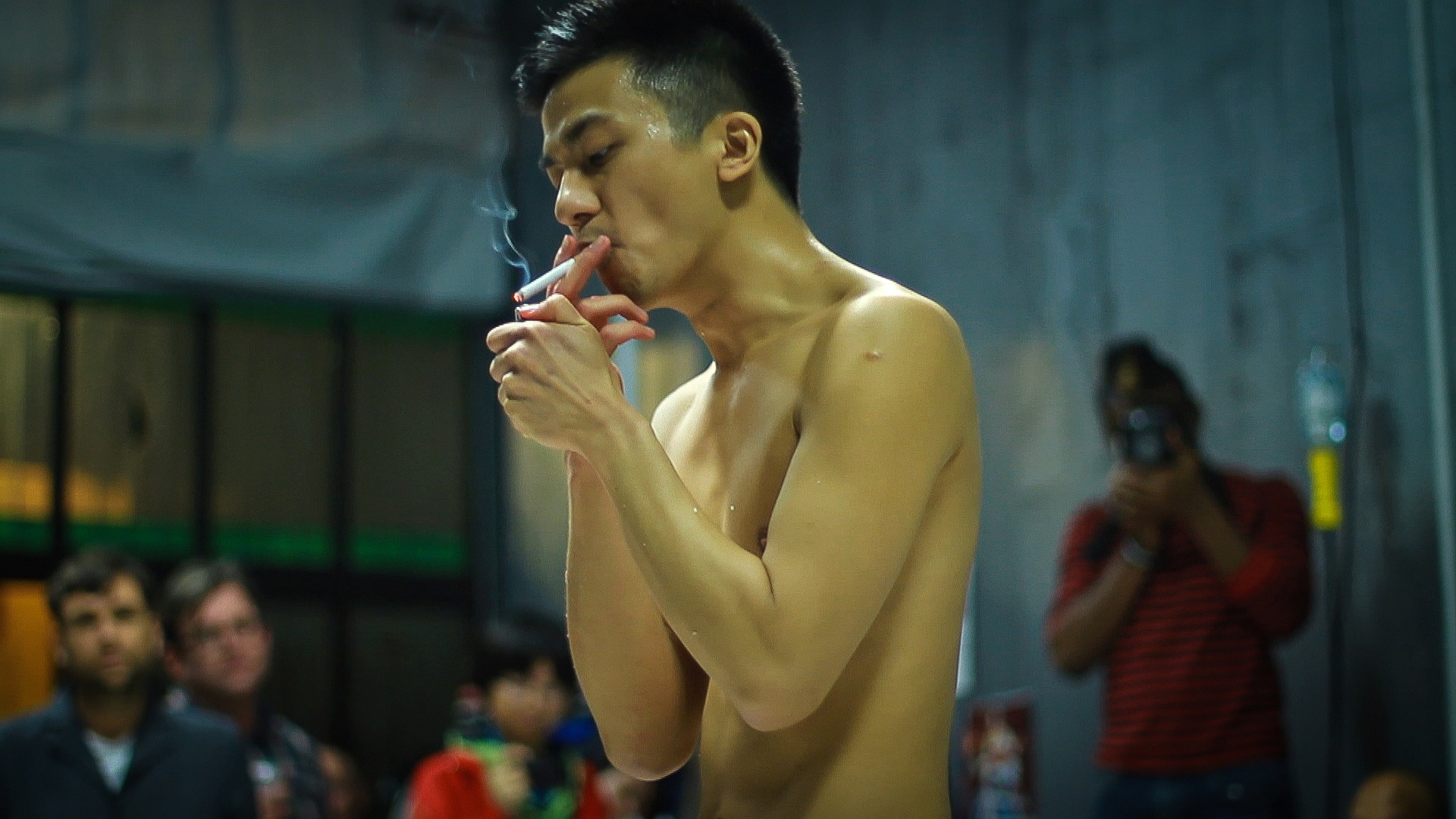
Loo Zihan, Chancre (2011), Film still | Image courtesy of the artist
Loo re-enacted “Brother Cane” twice to the public audience in Chicago and Singapore. On 19 February 2012, “Cane”, the second re-enactment of “Brother Cane” was a one-night only performance at the Substation, Singapore presented by The Necessary Stage as a Fringe Highlight for M1 Singapore Fringe Festival 2012, contained enactments of six different accounts of the “Brother Cane” including the media’s account, a video documentation, an eyewitness account among others.
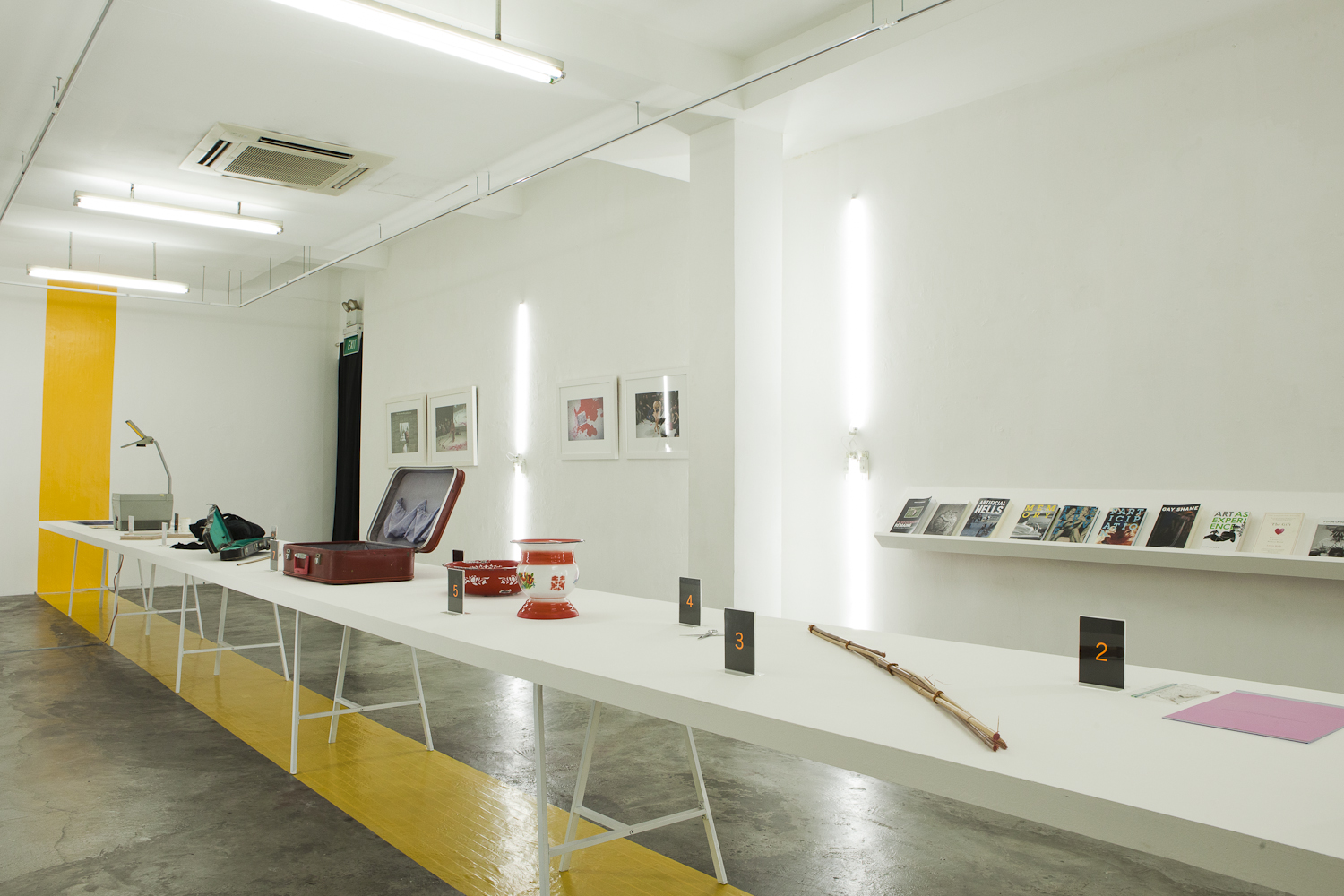
Loo Zihan, Exhibition view of Archiving Cane (2012), The Substation Gallery, Singapore, 2012 | Image courtesy of the artist and Samantha Tio
In December 2012, Loo’s first solo exhibition “Archiving Cane”, an installation and durational performance that consolidates and presents performance remains and documentation from the re-enactments of Josef Ng’s work by Loo was held at The Substation Gallery, Singapore. In 2013, the exhibition “Artists’ General Assembly: The Langenbach Archive (2013) was held at Sculpture Square, Singapore, which was an extension of Loo’s research into Josef Ng’s “Brother Cane”, containing a selection of approximately 150 documents from performance artist and academic Ray Langenbach’s visual and text based archive of the arts scene in Southeast Asia from the late 1980s to the present.
“Cane” (2012), re-enacting “Brother Cane” (1994) to reflect the changes in Singapore
“I question what the relationship of the Singaporean audience will be to Brother Cane 18 years on. Re-enacting this piece is the only way we can find the answer. I have faith that things have changed, and the artist who chooses to stand for his beliefs will no longer be silenced or exiled. I have faith in the power of art and the persistence of time to bring about this change.”
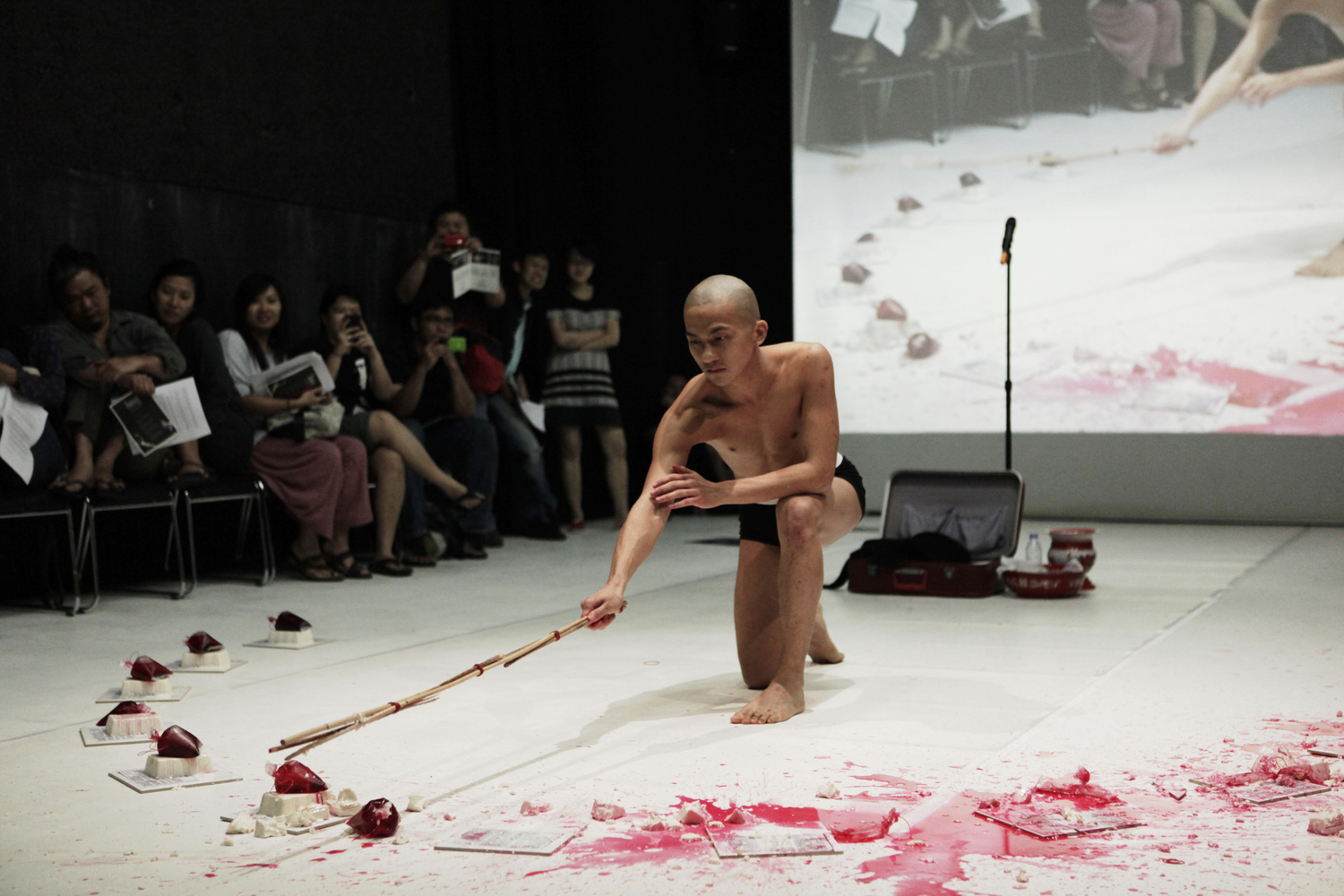
Loo Zihan, Cane (2012), M1 Singapore Fringe Festival 2012, The Substation Theatre, Singapore, 2012 | Image courtesy of the artist and Samantha Tio
On 31 December 1993 at 5th Passage Gallery, as part of a two week long art event Artists’ General Assembly, Josef Ng performed “Brother Cane”, a twenty-three minute performance in protest against police entrapment of twelve men at a public cruising area in Singapore. Six out of twelve men were given three strokes of the cane each while the names and occupations of all twelve men were published in the local newspapers in an act of deliberate public shaming. Josef’s performance included two significant gestures, the first was a moment when Josef walked to the far end of the gallery, turned his back towards the audience and lowered his briefs to snip off some of his pubic hair. He then proclaimed that cutting hair is a “form of silent protest”. The second gesture followed shortly after, when Josef lit a cigarette and smoked it a couple of times before stating that “maybe a silent protest is not enough”. He then stubbed out the cigarette on his left arm and ended the performance.
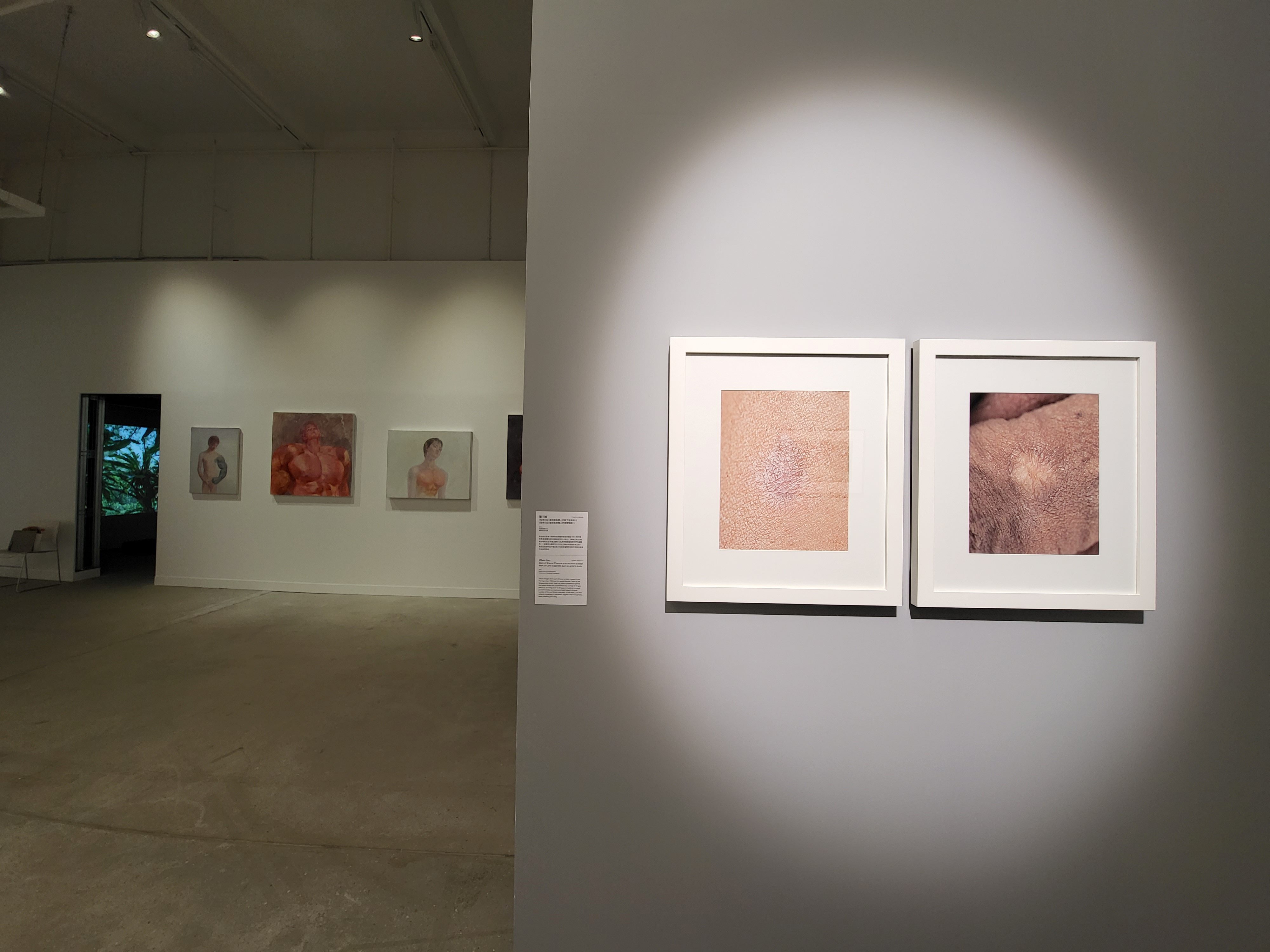
Loo Zihan, Mark of Cane (Cigarette burn on artist’s body), 2012 and Mark of Shame (Chancre scar on artist’s body), 2012, Exhibition View of Myth Makers—Spectrosynthesis III, Tai Kwun Contemporary, 2022 | Image courtesy of the artist, Tai Kwun and Sunpride Foundation
After the dissemination of the photograph that documented the moment when Josef turned his back to the audience and trimmed his pubic hair was published as front cover with the title “Pubic / Public Protest” on 3 January 1994 by a local tabloid newspaper, this led to a ten-year restriction for the licensing and funding of performance art by the National Arts Council of Singapore and Josef Ng plead guilty to charges of “committing an obscene act” and was fined SGD $1,000 dollars.
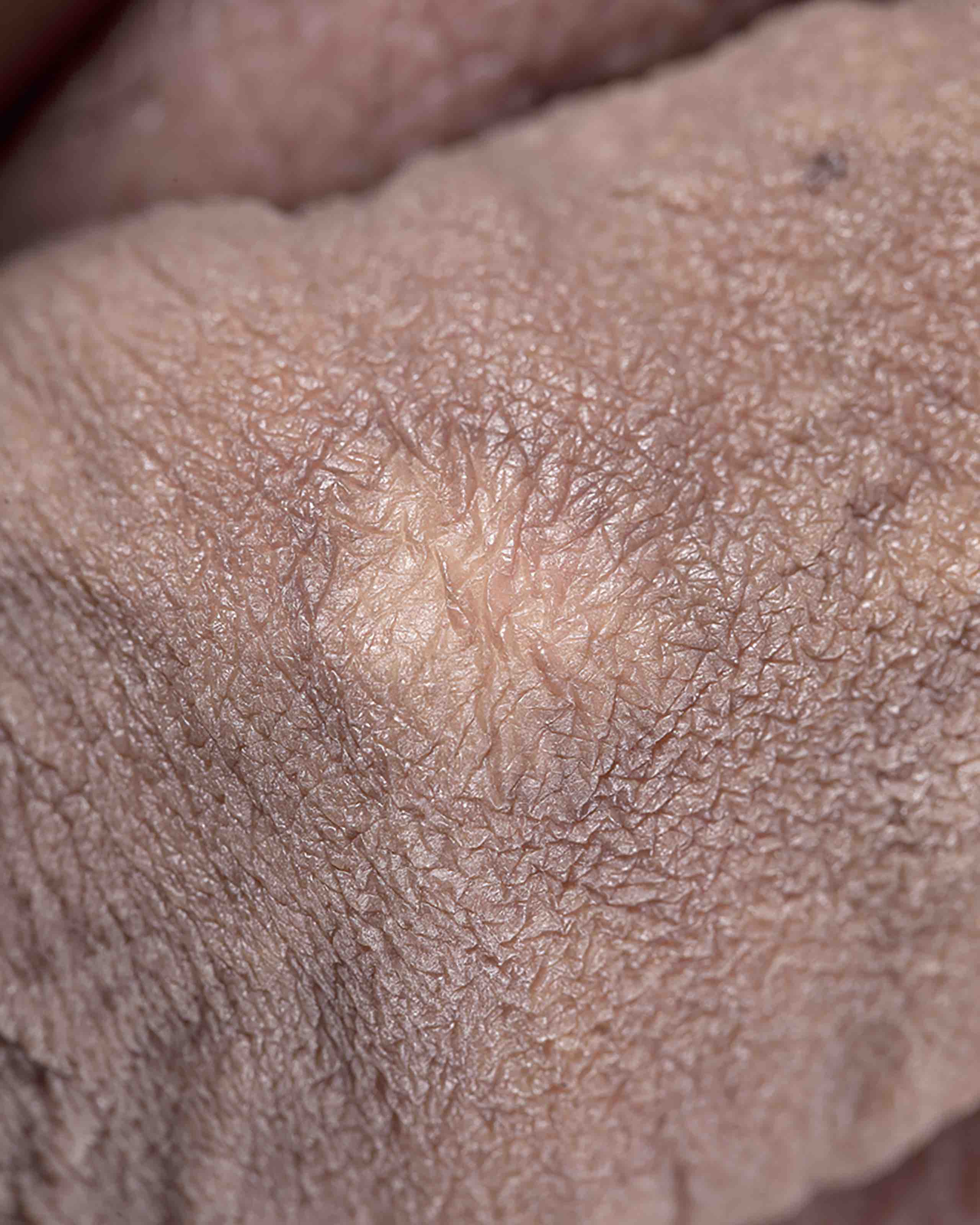
Loo Zihan, Mark of Shame (Chancre scar on artist’s body), 2012 | Image courtesy of the artist and Sunpride Foundation
In Singapore, prior to 2022, same-sex sexual activity between males including anal or oral sex was illegal under the British colonial-era Section 377A of the Penal Code. The punishment was two years’ imprisonment. Caning as punishment were introduced during the period of British colonial rule in Singapore. Judicial caning is applicable to only male convicts under the age of 50 for a wide range of offences under the Criminal Procedure Code, up to a maximum of 24 strokes per trial.

Loo Zihan, Mark of Cane (Cigarette burn on artist’s body), 2012 | Image courtesy of the artist and Sunpride Foundation
Until February 2022, the Court of Appeal in the Supreme Court reaffirmed that 377A cannot be used to prosecute men for having sex with other men, and that it is “unenforceable in its entirety”. On 21 August 2022, Prime Minister Lee Hsien Loong announced that the Government intended to repeal Section 377A of the Penal Code and added that the repeal would be deliberated through Parliament. After a two-day debate on 28 and 29 November, Section 377A was officially repealed in Parliament.

